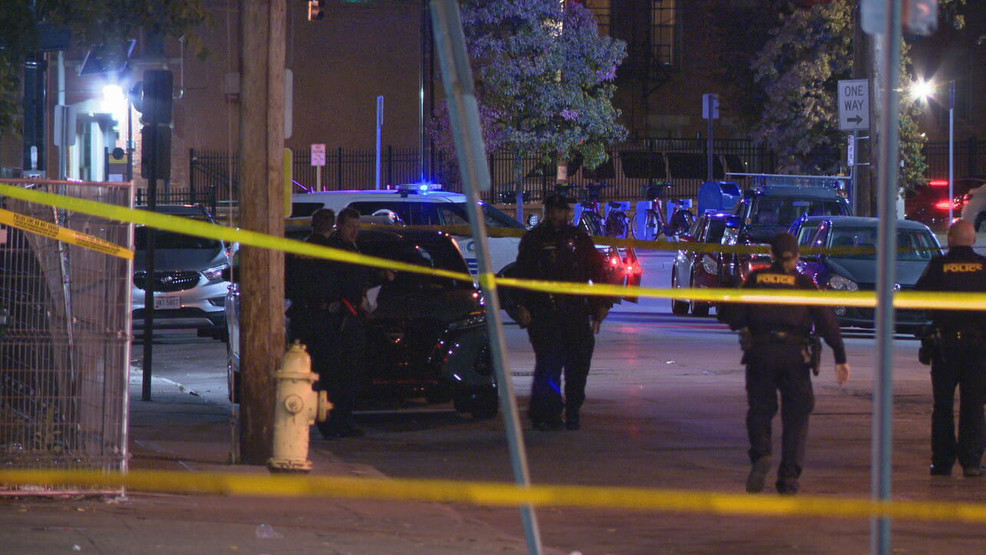
CINCINNATI (WKRC) – As the West End community tries to heal from the tragedy that unfolded more than a week ago, the trauma will likely stay with the victims, their families and the first responders on the scene.
On November 3, an 11-year-old boy died and four other children and a woman were injured in a mass shooting near a playground.
In the days following the shooting, Cincinnati leaders made it clear that the well-being of first responders is one of their priorities.
Gary Lee was a Cincinnati police officer for 33 years. He retired in 2014, but before doing so, he went back to school to prepare for his next step in life, as a therapist treating first responders, crime victims and their families. Sometimes clients are sent to him by police or fire departments who notice changes in members. He said he’s had first responders come to him years after their original experience to get help.
“What they had to see and deal with they will carry with them for the rest of their careers,” said Cincinnati Police Chief Teresa Theetge on November 5.
Long after the crime scene tape is gone, the trauma lingers.
“Because of a first responder’s training, experience and discipline, in the moment they’re able to very effectively perform their duties,” said Lee. “Unfortunately, when they leave the scene, those emotions and memories go with them and it’s in the calm quiet night that those emotions and memories are going to come flooding back over them.”
Lee said he’s found situations that hit close to home can have a lasting impact.
Through the lens of the mass shooting in West End, that could mean first responders on the scene having children the same age as the ones they’re saving.
Studies show police report higher rates of depression, anxiety and PTSD than the rest of us, yet most officers don’t seek mental health care.
“A couple reasons why those populations are reluctant to get help, especially among first responders, is the belief that no one else is going to understand what I’ve experienced and therefore they won’t be able to help. Another myth is, ‘I’m the hero. I’m the one that solves everyone else’s problems. I’ll take care of my own,’” said Lee.
Lee added they might fear being stigmatized, or that their career will be stunted for admitting they need help.
He said trauma can manifest into family or marriage issues, substance abuse, or other addictions.
“The best way to break through those traumatic experiences is to be able to talk about them with someone that the person feels safe with, and that’s part of what we provide here is that safety,” said Lee.
Studies have shown more police die by suicide than in the line of duty.
Just last week in California, the Los Angeles County Sheriff urged deputies to check on each other following four suicides in the department within 24 hours. The president of the LA Police Association said one of the things law enforcement officers are struggling with is trauma on the job.
Lee said an organization’s response and awareness to mental health can make a difference for the person and the organization as a whole.
“Because if we don’t take care of our people, how can our people take care of the community?” he said.
Lee said 5% to 6% of the general population will experience post-traumatic stress. While estimates vary, approximately 20% of first responders will experience some level of traumatic stress at any given time.
Lee said post-traumatic stress can manifest in several ways, including having intrusive thoughts like flashbacks or nightmares, avoidance of specific people or places, detachment from others, isolating and not wanting to share feelings or recall experiences.
He said traumatized people will become more cynical, have negative beliefs about themselves and others and have increased self blame, guilt and shame. They may be highly reactive, hyper vigilant, easily startled and experience physiological changes, including high blood pressure, heart rate, sweating, nausea and shortness of breath.
Lee said it’s important for friends and family with loved ones experiencing trauma to be supportive in a non-judgmental way. He added the Tri-State in particular is lucky to have a vibrant peer support program.
“The peer support program is where rank and file members receive specialized training in all sorts of mental health issues. They aren’t therapists, but they are trained to recognize behaviors that could potentially cause problems for the individual,” he said.
Cincinnati Police has a wellness program that provides 24/7 support to employees facing personal and professional stress.
Click here to learn more.
